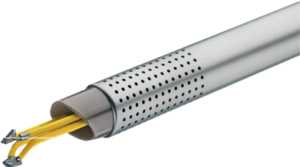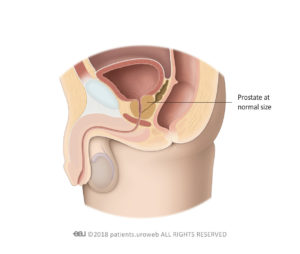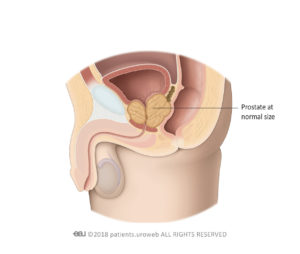Table of Contents
Benign prostate enlargement
Benign prostate enlargement, or BPE, is a non-cancerous condition in which the prostate gland, located below the bladder in men, becomes enlarged. The condition can block the flow of urine. A surgical treatment option for BPE is bipolar enucleation, often shortened to BipolEP. BipolEP removes the central part of the prostate and at the same time uses the thermal energy to help control bleeding during the surgery.
BipolEP is considered to be an alternative to laser treatment but has the same treatment outcomes to improve urinary symptoms. Your doctor will discuss your treatment options with you.
When should I consider BipolEP?
The prostate gland surrounds the urethra and is considered the gateway to the bladder. When it becomes enlarged, it can block your urinary flow. BipolEP is an excellent option for treating people with urinary symptoms caused by larger prostates. If you are unable to pass urine and need a urethral catheter, BipolEP may be an option for you.
How is BipolEP performed?
BipolEP is performed under general or spinal anaesthesia. You will be given antibiotics at the time of anaesthesia prior to the actual operation to prevent potential infections. The procedure involves having a small tube passed through your urethra that has a light source and a camera attached to it. This allows the surgeon to see inside the prostate with the visual image transmitted to an external screen.
During the procedure, the surgeon separates the inner or central part of the prostate that causes the blockage from the outer part (commonly known as the prostate capsule) using a bipolar electrode and then carefully moves the enucleated parts of the prostate into the bladder. Throughout the operation, the surgeon ensures there is no bleeding. The removed prostate tissue is subsequently sucked out using a device called a morcellator. You will have a temporary bladder catheter at the end of the operation. This will help to flush the bladder and also helps to prevent bleeding. The catheter will usually be taken out 24 to 48 hours later.

How do I prepare for the procedure?
You won’t be able to have any solid foods or liquids 6 hours before your procedure. If you are taking any medications, you will need to consult with your doctor or the anaesthetist for advice about whether to keep taking them on the day or not. Medicines that thin your blood such as warfarin, clopidogrel, or apixaban may need to be stopped prior to surgery, so it’s important to check this with your doctor. If you have an implant such as a pacemaker or defibrillator you will need to let the surgical team know as they might need to make adjustments to the device prior to surgery.
How long will it take before I can go back to my daily activities?
very time in hospital will depend on where you live and the health policies in your country, but usually you will be able to return home around 24 to 48 hours after the procedure. For the first 2 weeks after the procedure you will be advised to limit strenuous physical activity, but after this most patients are okay to resume their regular daily activities. You might also see blood in your urine in the first few weeks, so you will be advised to drink 1-2 litres of water per day to help keep your urine clear.
What possible side effects would I expect?
Possible side effects after having BipolEP include:
- Temporary burning or frequent urination
- Absence of semen during ejaculation (called retrograde ejaculation)
- Small risk of losing your erections
- Temporary loss of urine control which can be improved with pelvic floor exercise. You will see that the urine flow will improve immediately.
- Persistence or recurrence of urinary symptoms
- Urethral narrowing due to the use of urethral instrumentation
- Anaesthetic risks
You need to consult your general practitioner or go back to the hospital immediately if:
- You feel unwell with a temperature
- If you are not able to urinate on your own
- If you are passing blood clots



